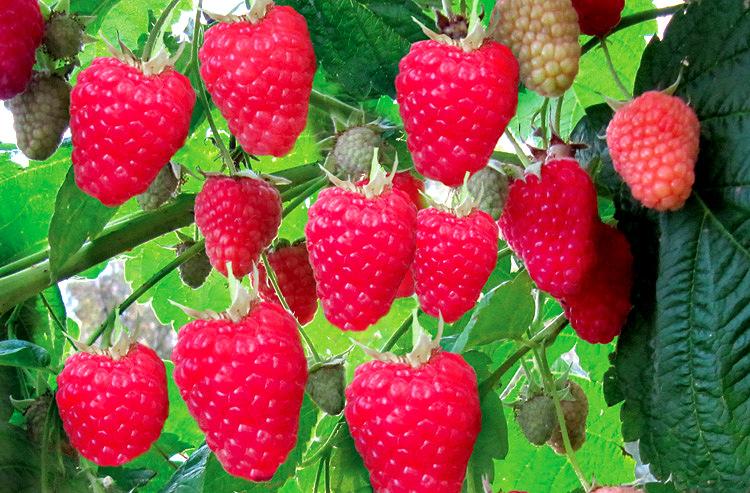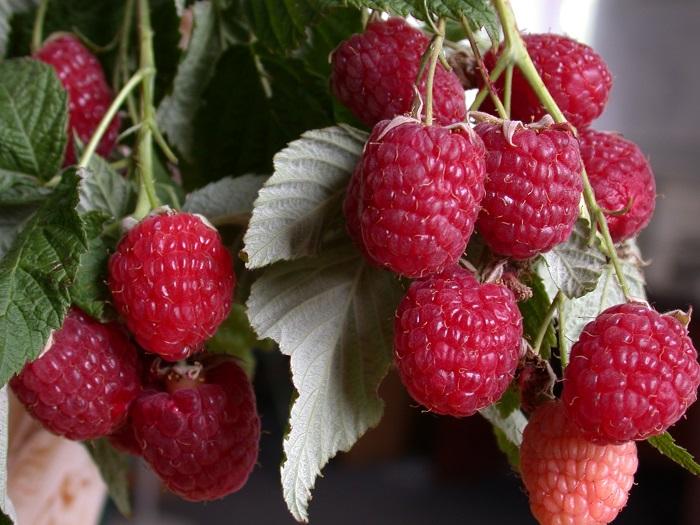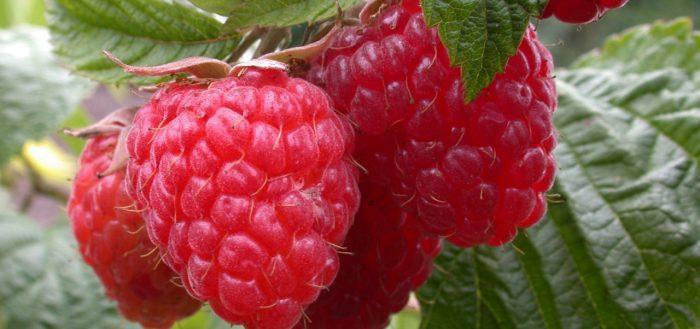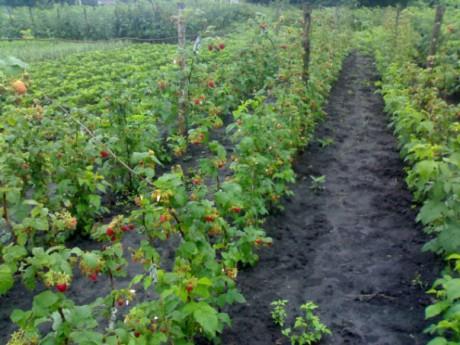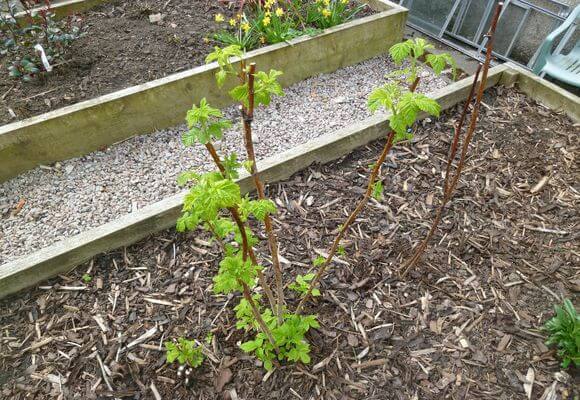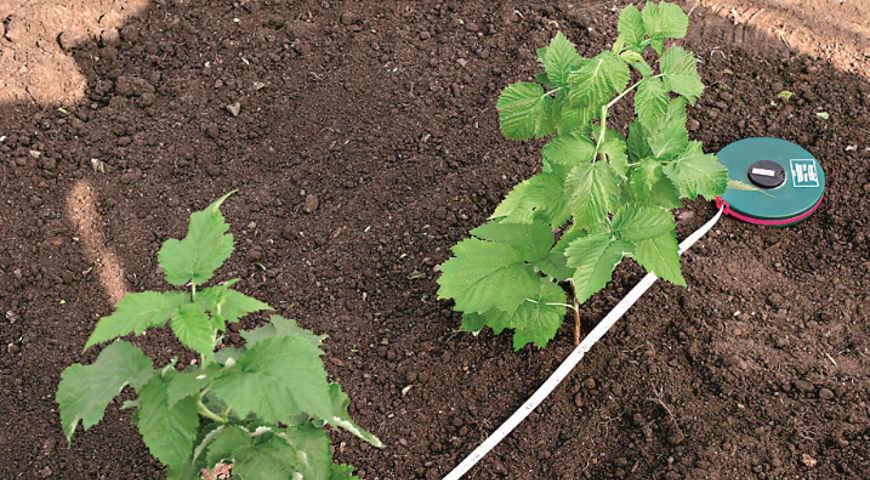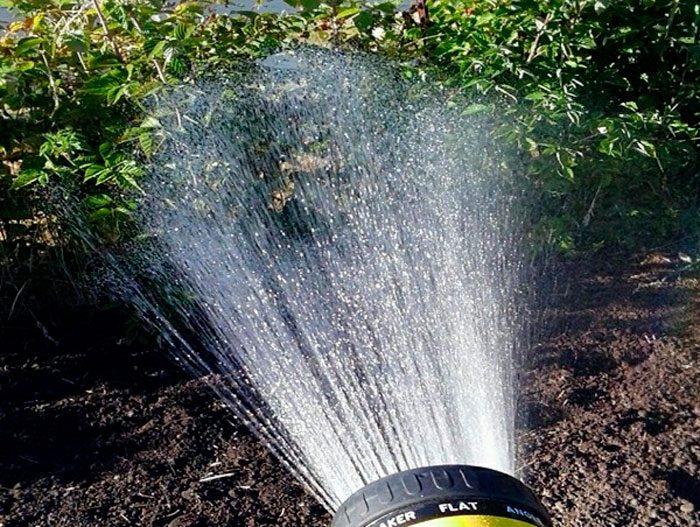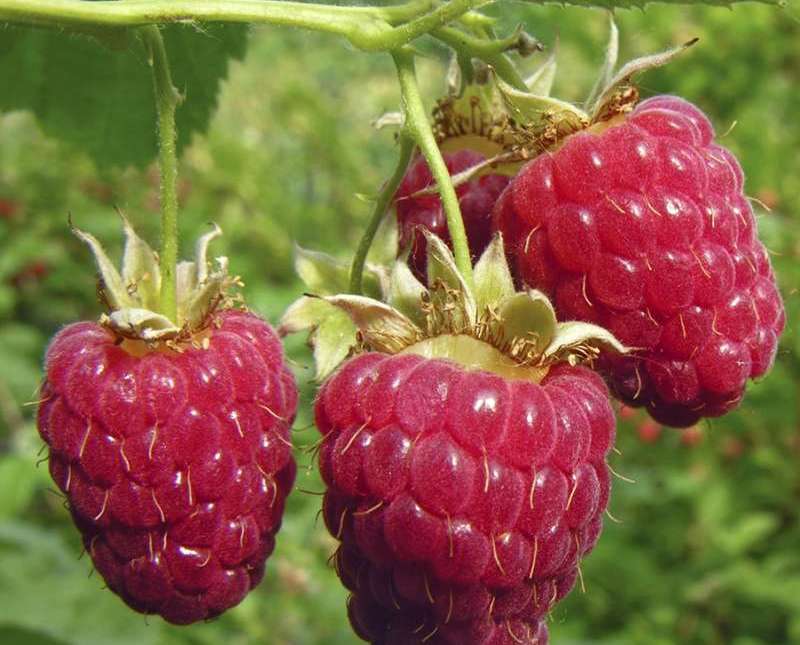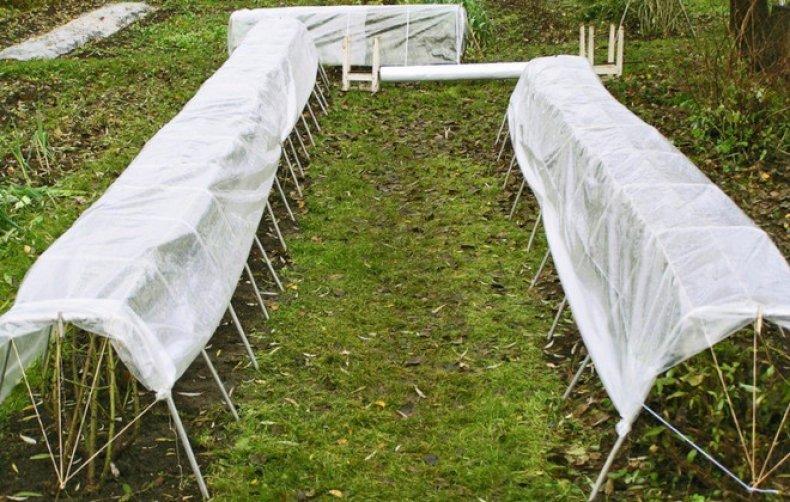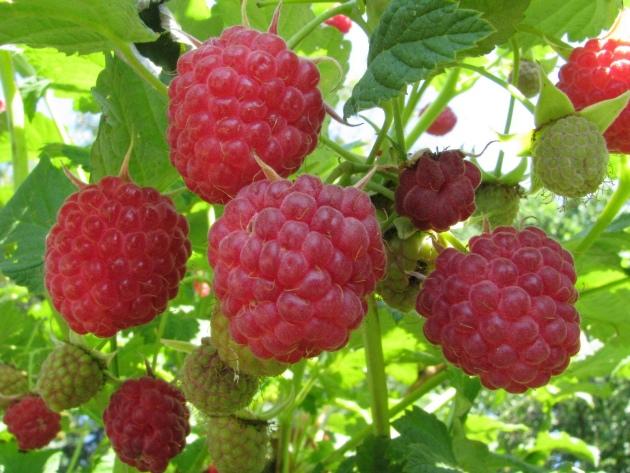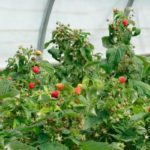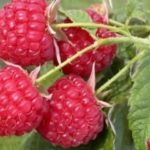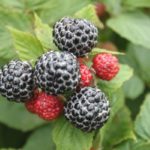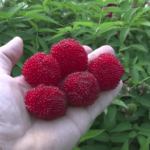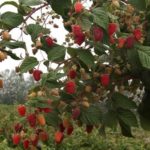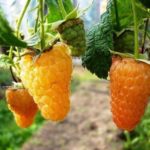Raspberries are a storehouse of beneficial vitamins and minerals, so it is not surprising that remontant varieties, which produce crops several times a season, have quickly become popular. One of these varieties is Hercules raspberry, the description of which can impress anyone. The advantage of the hybrid is not only fruiting twice a season, but also productivity.
- Description and characteristics of raspberry Hercules
- The main pros and cons of the variety
- The nuances of growing berries
- What location on the site is suitable for planting?
- Preparing the ground
- Selection of seedlings
- Let's start landing
- When to plant raspberries Hercules
- Rules for caring for raspberries
- Watering and fertilizing
- Weeding, loosening and mulching
- Trimming
- Wintering
- Diseases and harmful insects
- Harvest and use
Description and characteristics of raspberry Hercules
The raspberry variety Hercules was created by breeder from Russia I.V. Kazakov. The bushes yield up to 2 times during the growing season - in July and August. The berries ripen for the first time on old shoots. The second time - on young people. The bush is of the slightly spreading type, reaching a height of 2 m without pruning. The shoots are quite powerful, even if there is a lot of harvest on the bushes, they do not bend downwards, so tying to the support of the bushes is not required.
Young shoots have an emerald hue; last year's shoots become brownish-purple in color and become covered with a waxy coating. All stems are completely covered with thorns.
Among the benefits are a lot of berries. Fruits at the stage of full maturity reach a weight of 7-12 g. The maximum weight can reach 16 g. The shape of the fruit is cone-shaped, the color of the raspberry is rich pink with a red tint. The pulp is dense, sweet and sour in taste with a pronounced raspberry aroma. According to the tasting scale, the variety received 4 points out of 5.
Up to 2 kg of harvest is harvested from one adult bush of the Hercules variety. Due to its high and stable yield, the variety is grown not only in summer cottages, but also on an industrial scale. The variety belongs to drought-resistant and frost-resistant hybrids. But in winters with little snow, it is advisable to protect the bushes from frost.
The main pros and cons of the variety
The main advantages of the Hercules variety for gardeners:
- taste qualities of berries;
- productivity;
- fruiting occurs twice a year;
- large berries;
- bushes are able to survive frosty winters and dry summers;
- ease of care.
Among the disadvantages, there is poor shoot formation; during the summer there are only three replacement shoots. Also, the bushes are completely covered with thorns, which makes picking berries difficult. It is easy to injure your hands if you assemble without gloves.
The nuances of growing berries
The technology for growing remontant varieties is practically no different from planting ordinary raspberry hybrids. This is a crucial moment on which not only future productivity depends, but also health and immunity to diseases and pests.
What location on the site is suitable for planting?
Before you start planting raspberry seedlings, you should decide on the choice of location. Raspberries are light-loving crops and will bear fruit poorly when planted in the shade. The area with raspberries should be illuminated from all sides for more than half the day. Also, the site must be protected from cold winds from all sides. It is best to plant seedlings on the south or east side.
It is not advisable to place seedlings next to spreading trees. Not only will they block the sun for the raspberries, but they will also absorb most of the nutrients from the soil. Because of this, the raspberries will grow worse.
The soil for planting is fertile and well-drained. Sandy loam or loamy soil is most favorable.
Preparing the ground
They begin to prepare the soil for planting seedlings in the fall. During this period, the soil is dug up, all weeds are removed and rotted manure is added. Over the winter the soil will become fertile. In the spring, the soil is dug up again and watered with a weak solution of potassium permanganate to disinfect it. After this, they begin planting.
You should dig to a depth of at least 15 cm. Harmful insects overwinter in the top layer of soil, and in the spring they feed on the juice of young leaves of plants that grow near the wintering site.
Selection of seedlings
When planting, special attention is paid to the choice of planting material. First of all, when purchasing a seedling, the root system is inspected. The roots should be elastic, healthy and not dried out.They should also be free of signs of mold and traces of insects.
The shoots must be elastic, without damage or traces of insects. The stems are red-brown in color, with a small layer of waxy coating. If there are dried branches on the seedling, it is not suitable for planting.
Let's start landing
The Hercules variety is mainly propagated by seedlings or cuttings. But the easiest way is to buy ready-made specimens and plant them.
Planting process:
- Make holes in the soil about 60 cm.
- Stick a strong wooden picket fence into the middle.
- The distance between the holes is left up to 70 cm.
- Place the seedling in the hole, bury it with soil and compact it near the root collar.
Tie the new seedling to the picket fence. At the end of planting, water the raspberries with warm water.
When to plant raspberries Hercules
Raspberries Hercules are planted in spring or autumn. In spring, the second half of April - early May is considered a favorable period for this. In autumn, planting is carried out at the end of September - beginning of October. The time of planting shrubs does not affect the yield.
Rules for caring for raspberries
Like any agricultural crop, raspberries need constant care. Some gardeners neglect these procedures. This subsequently affects the yield.
Watering and fertilizing
Remontant raspberry Daughter of Hercules cannot bear fruit without fertilizing. The plant is fed for the first time in early May with nitrogenous fertilizers. The second time nutrients are added during flowering and fruiting. Use phosphorus-potassium complex fertilizers, wood ash or diluted bird droppings. After harvesting, rotted manure is added to the soil.
The shrubs are watered abundantly in the first half of the growing season.Then 5-6 moisturizers per month are enough.
Weeding, loosening and mulching
Several times a month it is necessary to loosen the soil in the raspberry field. The soil is weeded to a depth of 7-9 cm. It is not recommended to loosen it deeper, so as not to damage the root system of the bushes. During weeding, all weeds are removed from the area.
To prevent the bush from dying from winter frosts, the soil around the bushes is mulched. The mulch layer should not be less than 10 cm. Peat, sawdust, straw and agrofibre are suitable as mulching materials. In addition to protecting the shrub from frost, they also retain moisture in the soil and prevent weeds from growing.
Trimming
In the fall, all dry and damaged branches of raspberries are cut off. It is also advisable to prune two-year-old shoots that produced a harvest this year. It is not recommended to touch young and healthy branches.
Wintering
In the fall, after harvesting, two-year-old shoots that have already produced fruit are cut off. Weak and dry branches are also removed. Then they cover the raspberry tree with spruce branches. If the winters in the growing region are warm, they do without shelter.
Diseases and harmful insects
There are often aphids on raspberries. You can get rid of it by spraying with a soap solution. The raspberry beetle is also found on the bush. You can get rid of it by treating plants with karbofos. To prevent insects from appearing on the plant in the spring, the soil is dug up in the fall and watered with potassium permanganate.
White and brown spots are destroyed by spraying with copper-containing preparations. Treating plants with Bordeaux mixture helps prevent rust. If a spotted mosaic appears on the bushes, it cannot be cured. You will have to dig up and destroy the bushes. The same will have to be done if the bushes become sick with leaf curl.
Harvest and use
The Hercules raspberry variety bears fruit twice a season. It is best to wear gloves when picking berries, especially if the raspberries are large. All stems of the plant are covered with thorns and it is easy to damage the skin when picking berries. It is recommended to harvest early in the morning, while the sun is just rising, or in the evening, when it has already set. If you pick the fruits when they are cool, they will last longer. Berries picked in the heat quickly spoil.
To harvest raspberries, it is recommended to take large baskets or buckets with you. If the berries lie on top of each other in a thick layer, they will quickly begin to ferment and become moldy. The berries will last the longest in the refrigerator at a temperature of +4 - +6 degrees.
The use of raspberries in cooking is extensive. The berries are used for making preserves, jams and compotes. Raspberries also make delicious pies and pies. The berries are frozen fresh for the winter. Another way to harvest fruits is to dry them. Dried berries are used to brew tea.

